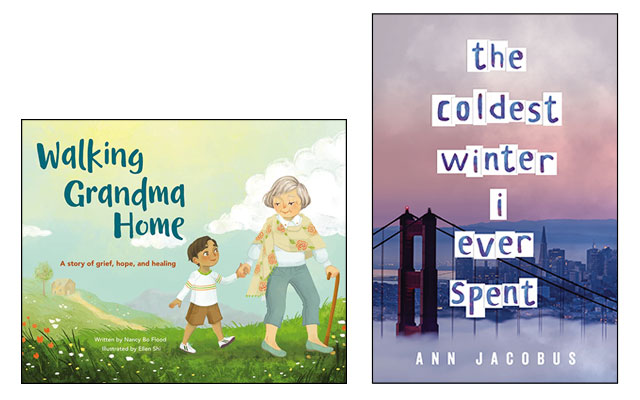The Coldest Winter I Ever Spent
Last week I received this note from a friend who is an author, poet, educator, besides being a wonderful friend. Her thoughts stopped me, caused me to reflect on the critical need for us to recognize, talk about, read and write about suicide.
“When I found Walking Grandma Home and opened the cover, I read it and I am reading it again now, I thought how much it would have helped me if my mother would have had a way to talk to me after her brother died. I found out decades later that he died by suicide, but this was a secret. We were so bound by rules that constricted us, weren’t we?
“Your book, Walking Grandma Home, speaks to children; I’m sure it also comforts their caregivers, who may not know how deeply they, too, are grieving.”
Her words reflect what current research data and statistics tell us: suicide rates continue to increase dramatically, tragically. Suicide is now the second leading cause of our children’s and young people’s deaths. One way we can help decrease the rising numbers of suicides is to break the silence. Any silence, including the silence that often surrounds grief.
During Covid, the numbers of adults, teens, and children struggling with mental illness, especially depression, and who are contemplating suicide, has significantly and rapidly increased. Think about this: last year in our high schools, one girl out of every three was significantly depressed and gave serious thought to committing suicide. One out of three!

The Coldest Winter I Ever Spent by Ann Jacobus speaks to us about suicide. She speaks to the question, “why does one choose to end one’s life?” with authenticity and insight from someone who has been there and now helps others who are contemplating this desperate decision. This YA novel is also a story with hope. When secrets and silence are broken … when someone at that “emotional cliff” reaches out and hears a caring voice, there is hope.
My friend continued to say to me:
“When my father died suddenly of a heart attack at age 56, I was 22. The strongest feeling I had was: ‘Why aren’t all the stores closed? Why is everyone still on the streets? Why do the traffic lights still work? Why isn’t everyone stopped at the horror of what has just happened in our world? Why isn’t everyone at home weeping?’
“I wrote lots of poetry when Dad died. I had dreams of him. I still love when I dream of him. I feel lucky to spend time with him, even if it’s just in a dream.
“My mother and my sister had dreams, too. Our dreams tried to explain where he’d gone (I think because he died so unexpectedly). Mom dreamed that he went out for coffee and never returned. My sister dreamed he went to Canada. I dreamed (two weeks after he died) that he’d been taking a very long shower and that no one had thought to check there. And yes, when I woke up, I did run to check the shower…’”
“I found quotes which helped me:
“Hope is the feeling you have that the feeling you have isn’t permanent.” (Jean Kerr)
“The world is round and the place which may seem like the end may also be the beginning.” (Ivy Baker Priest)
“Okay, that’s waaaay more than I meant to write, Nancy. The point is, Walking Grandma Home, is an important book, and I will share it with children and parents who are hurting.💕
And to my readers, I encourage you to read The Coldest Winter I Ever Spent by Ann Jacobus. With your family or your bookclub friends, talk about depression, suicide, and what we each can do when someone is struggling to find hope.